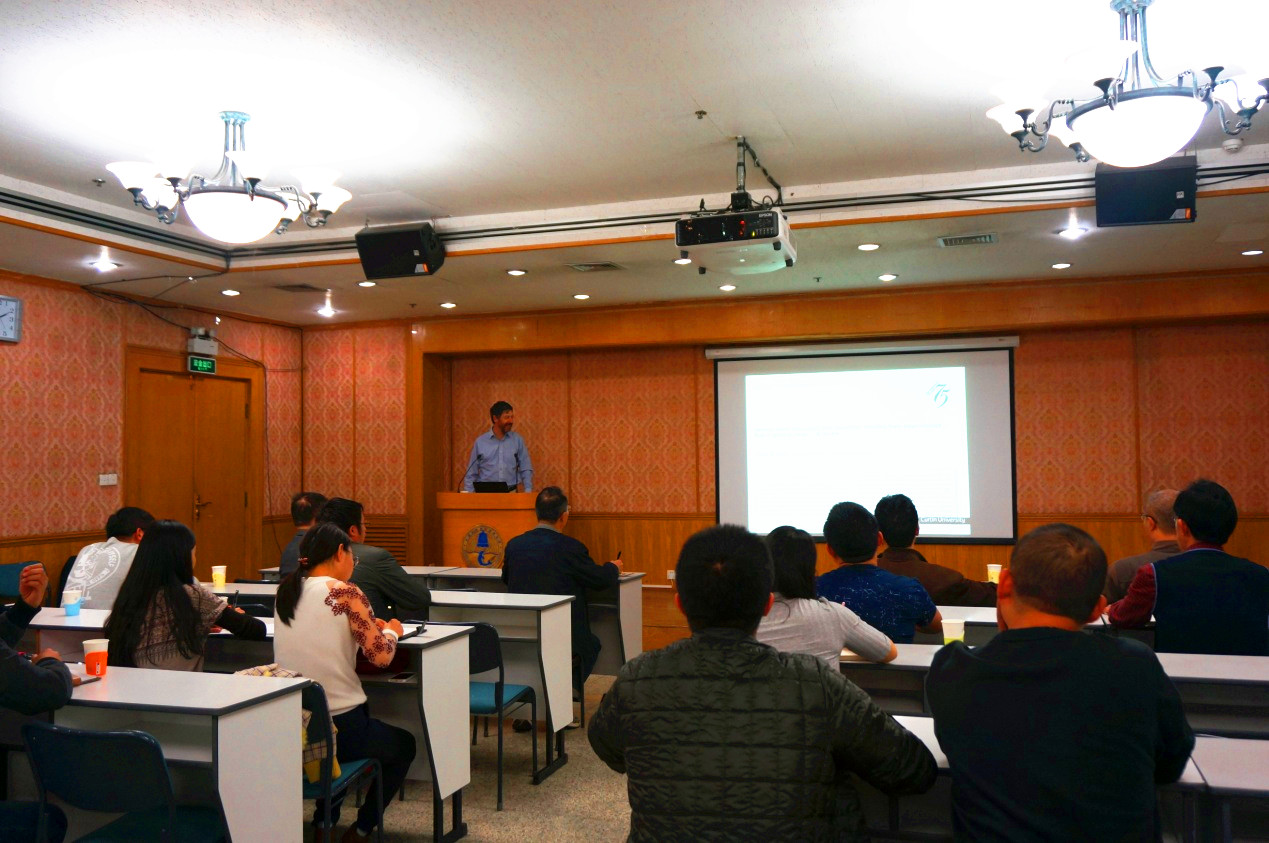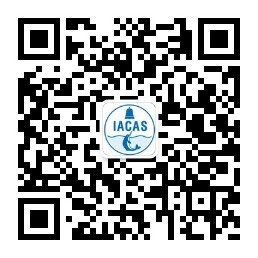Date: April 26, 2016
Source: ZHOU Yinqiu from the Research Center for Ultrasonics and Technologies

Prof. Boris Gurevich
Credit: Research Center for Ultrasonics and Technologies
Prof. Boris Gurevich, Vice Dean of Department of Science and Engineering of Curtin University visited the Institute of Acoustics (IOA), and made a presentation entitled "Effect of the fluid, solid and viscoelastic pore fill on velocity, attenuation and anisotropy of porous and fractured rocks " on April 1.
Boris was invited by Prof. WANG Xiuming, Director of Research Center for Ultrasonics and Technologies of IOA.
Many researchers and students attended the presentation made by Boris, including Prof. ZHANG Bixing, Prof. LIN Weijun, Prof. CONG Jiansheng, Prof. CHEN Dehua, Prof. CHEN Hao and Prof. LI Xiaolin, and the presentation was chaired by Xiuming.
In the presentation, Boris firstly introduced the mechanism of attenuation and dispersion of elastic wave propagation in multiphase porous medium. And he pointed out that wave-induced flow was caused by fluid pressure relaxation.
Based on extensive research of influence of wave-induced flow in porous rocks on attenuation and dispersion of seismic wave, Boris introduced Biot global flow model, mesoscopic flow model and squirt model to analyze the advantages and disadvantages of the conventional methods and models. And then, Boris introduced his own models and methods developed, based on previous work.
Boris mentioned that in the analysis of influence of mesoscopic flow on elastic waves, statistical wave propagation theory could be applied to the analysis of dynamic characteristics of the sound field. Meantstatistical smoothing method was applied to Biot poroelastic medium model to obtain acoustic wave field under the influence of wave-induced flow. That could be used to analyze the attenuation and scattering of elastic waves wave-induced flow caused.
In the analysis of the role of squirt, through his analysis of distribution characteristics of pores between rock particles, Boris obtained the new squirt model by using poroelastic acoustic theory. The results of this model compared with previous results had a good consistency.
The presentation given by Boris was well received and aroused widespread interest. After it, Boris and Xiuming communicated on further cooperation, academic exchanges and other issues and they finally reached a preliminary agreement, hoping to make great efforts to promote academic exchanges and scientific cooperation in future.
Prof. Boris Gurevich is an internationally renowned rock acoustic physicist, who has been the associate editor of GEOPHYSICS since 2005. He has a deep knowledge in rock physics research such as acoustic modeling, acoustic simulation of reservoir rocks and so on.

Credit: Research Center for Ultrasonics and Technologies


